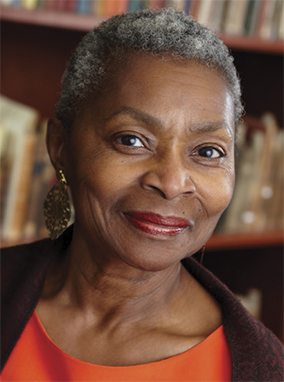HISTORIC BLACK VEGAS: Revisiting the Gettysburg Address
November 9, 2025 by agutting@reviewjournal.com
Filed under Community
BY CLAYTEE D. WHITE
The three-day Battle of Gettysburg claimed over 50,000 lives. Won by the Union, this 1863 battle took place across the first three days of July and changed the course of the Civil War — preventing General Lee from advancing into the North. President Lincoln’s Address on November 19, 1963 was short but one of the most powerful speeches of all times.
Four score and seven years ago our fathers brought forth on this continent, a new nation, conceived in Liberty, and dedicated to the proposition that all men are created equal. Now we are engaged in a great civil war, testing whether that nation, or any nation so conceived and so dedicated, can long endure. We are met on a great battle-field of that war. We have come to dedicate a portion of that field, as a final resting place for those who here gave their lives that that nation might live. It is altogether fitting and proper that we should do this.
But, in a larger sense, we cannot dedicate — we cannot consecrate — we cannot hallow — this ground. The brave men, living and dead, who struggled here, have consecrated it, far above our poor power to add or detract. The world will little note, nor long remember what we say here, but it can never forget what they did here. It is for us the living, rather, to be dedicated here to the unfinished work which they who fought here have thus far so nobly advanced. It is rather for us to be here dedicated to the great task remaining before us — that from these honored dead we take increased devotion to that cause for which they gave the last full measure of devotion—that we here highly resolve that these dead shall not have died in vain — that this nation, under God, shall have a new birth of freedom—and that government of the people, by the people, for the people, shall not perish from the earth.
In January 1863, African Americans were allowed to fight in the Civil War after the Emancipation Proclamation. By July 1863 at Gettysburg, Union Gen. George Meade forced the confederate army to retreat on July 4. As soon as I read this, my first thought was that Black soldiers could have made the difference in this battle. Artificial Intelligence (AI) refutes this line of thinking, but there are others in line with my thinking. I quote Henry Louis Gates Jr.’s article in The Root:
“For every Southern boy fourteen years old,” William Faulkner famously wrote in “Intruder in the Dust” (1948), it is early in the afternoon on July 3, 1863, just before the order is given to attack the center of the Union line across an open field three-quarters of a mile long, which leads up to Cemetery Ridge at what will become the high water mark of the Confederacy — Pickett’s Charge. “This time. Maybe this time,” the fantasy goes.
To it I might add the less well-known but equally fervent dream of many Black boys 14 years old, I’m sure: that when those grey and tattered butternut coats, their bayonets glistening in the summer sun, reach the apex of wood and stone, they and their African-American comrades are there to repulse the attack with the righteous fury of centuries of their enslaved ancestors, a clear victory of freedom over slavery that will drown out, once and for all, the wild rebel yell.
What do you think?






